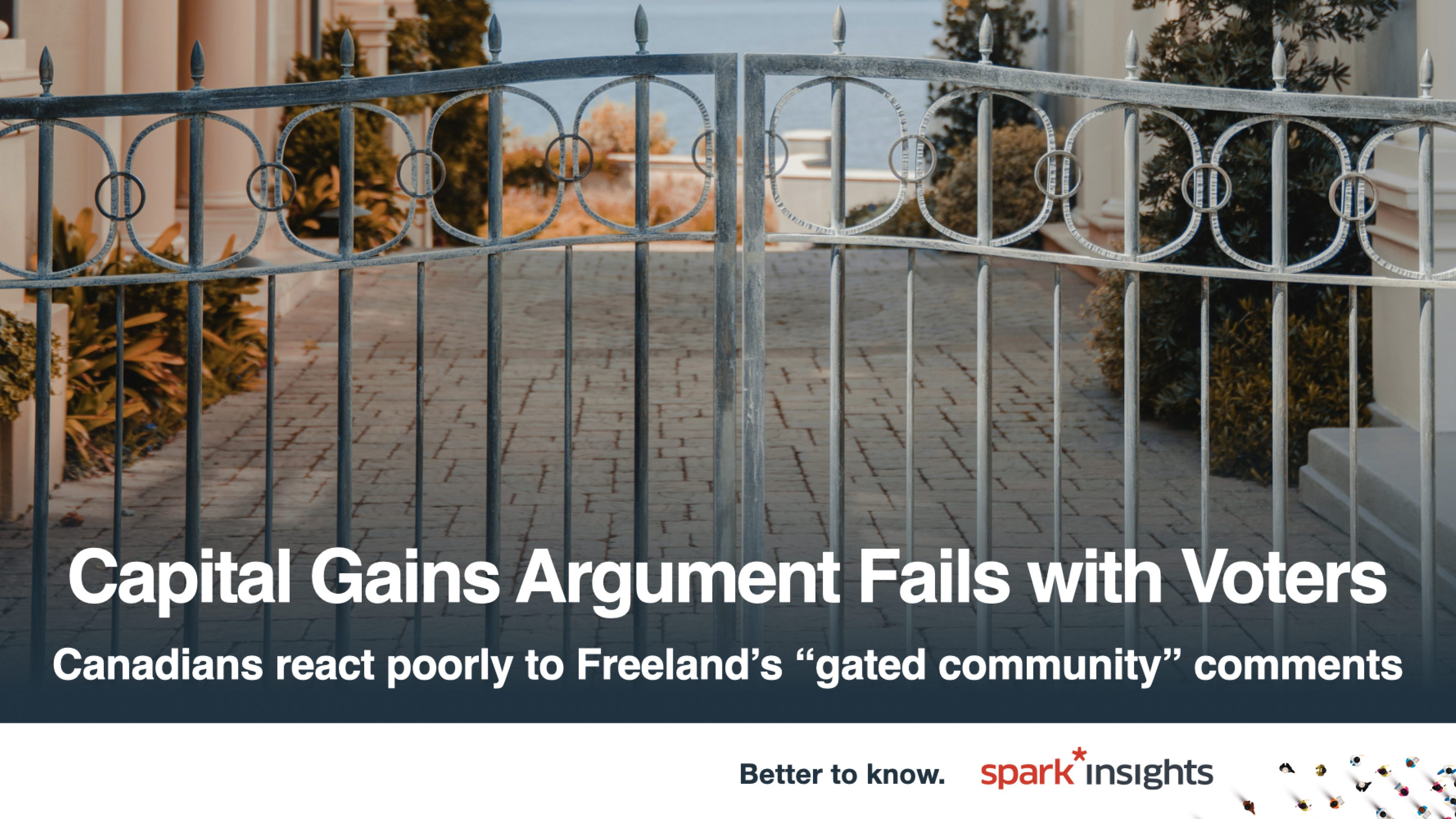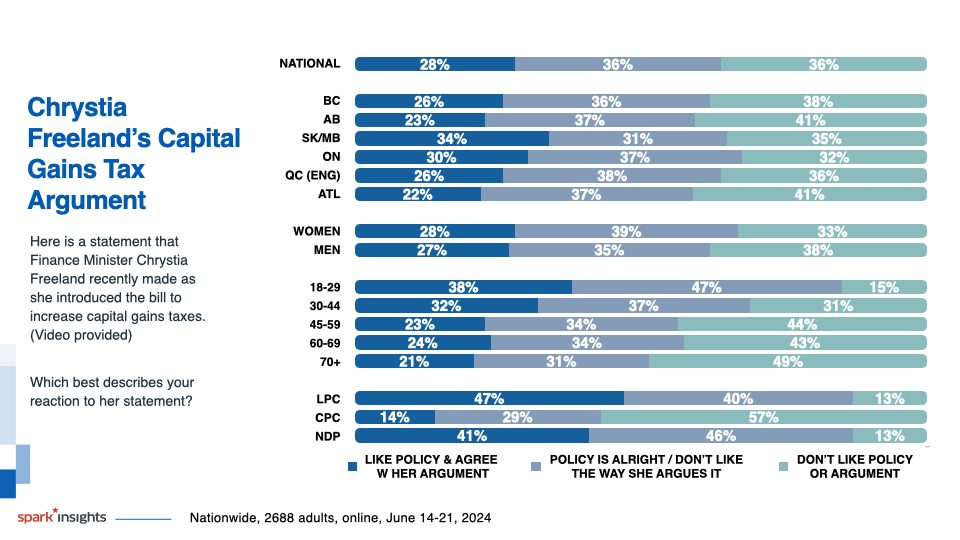Subscribe for more!
Subscribe to our newsletter for insights and articles on wide ranging issues including reputation management, branding, advertising, awareness, advocacy, and communications. You can unsubscribe anytime.
Follow us on social:

Freeland's rhetoric on class divisions fails to boost support for the new tax policy
In our survey of 2,688 Canadians (June 14th to 21st) we played a video clip from a highly publicized scrum by Finance Minister Freeland for respondents, in which she said: "Do you want to live in a country where those at the very top live lives of luxury, but must do so in gated communities behind ever higher fences using private healthcare and airplanes because the public sphere is so degraded and the wrath of the vast majority of their less privileged compatriots burns so hot". Respondents were asked to react to the clip, using these response categories:
Most find the policy acceptable (64%), but even more (72%) didn’t like the way Ms. Freeland made her case for it in this clip. Young people were considerably more likely to like the policy than older people. However, majorities among every age group, gender, region and most supporters of all three major parties (including the Liberals and NDP) didn’t like the way it was pitched.

Bruce Anderson, Partner and Chief Strategy Officer: “The challenge the Liberals have run into with this tax change is partly that some people don’t like the idea of increased taxation, but a bigger challenge may be disagreeing with the idea of characterizing people into “have nots” and “care nots”. The language in this clip implies that opposing the tax change means having no empathy for the plight of those with less, something respondents might reasonably feel is an unwarranted criticism, and divisive as well.”
spark*insights is led by Bruce Anderson, one of Canada’s leading and most experienced public opinion researchers. From polling and research to analysis and guidance, we help organizations, uncover the factors driving or influencing public perception to gain valuable insights into the shape and movement of the landscape.